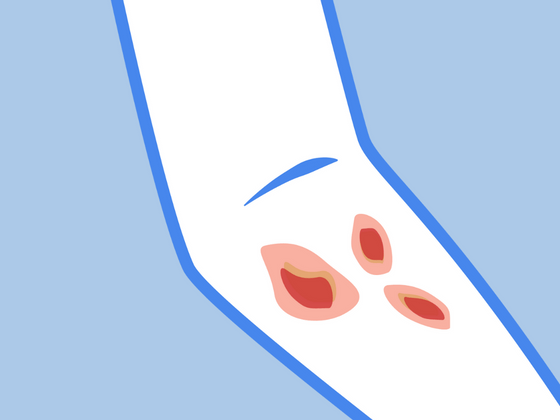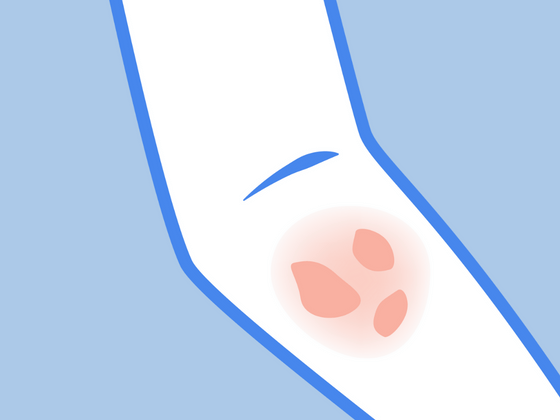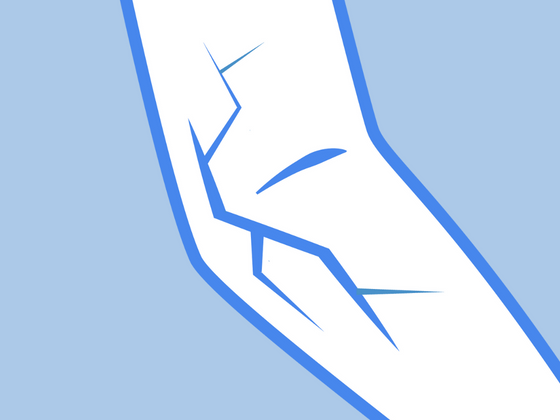Are you noticing that your eczema is peeling?
Peeling skin is often a sign that your skin is healing from some type of damage. It occurs when your body sheds some of the skin’s outer layer which is called the epidermis. Damage can be the result of sunburns, environmental elements like wind and dryness, allergies, certain diseases, and skin conditions like eczema.
A certain type of eczema that is known for causing skin peeling is called exfoliative dermatitis.
Read on to learn more about eczema and skin peeling.
Please keep in mind that although these tips and information have worked for several sufferers, we are in no way medical professionals. If you’re experiencing severe symptoms or have a topical infection, it is always best to seek medical advice immediately.
Does Eczema Peel?
Yes, eczema can involve dry, scaly, and peeling skin. For example, exfoliative dermatitis involves at least 90% of the skin to peel all over the body. The skin may be peeling due to a pre-existing medical condition or because of certain medications. In some cases, it doesn’t have a clear cause.
In other cases, exfoliative dermatitis can lead to severe issues such as dehydration, loss of nutrients, and infection. Underlying conditions that can lead to exfoliate dermatitis include psoriasis, seborrheic dermatitis, and eczema.
Experts believe that the development of exfoliative dermatitis can be linked to how white blood cells and skin cells interact with the immune system, somehow producing an increase in skin cell regeneration.
Why is My Eczema Peeling?
As we mentioned, exfoliative dermatitis could be the body’s reaction to an underlying health condition or trigger. This is what causes the skin cells to turn over, die, or shed too quickly. Skin cells generally regenerate every 27 days.
But the rapid turnover of skin cells, due to conditions like exfoliative dermatitis, can cause the skin to scale or peel.
Natural Ways to Soothe your Skin
If you’re looking for natural ways to prevent or manage skin peeling, check out these natural remedies:
Organic Calendula Oil:
This skin soothing oil gives your skin an extra boost of moisture. It’s full of vitamins, antioxidants, essential fatty acids, plant compounds and natural enzymes. You can apply it directly to your peeling skin or add it to your bath for an extra boost of moisture. It’s gentle for both babies and adults
20% Pine Tar Soap with Tallow:
This natural remedy helps slow the rapid growth of skin cells and restore the skin's appearance. It also has anti-bacterial and anti-inflammatory properties to help calm irritated skin all over. You can use it as a body soap or as a shampoo to relieve scalp eczema, dandruff, and psoriasis.
Super Dry Soother:
This super dry formula was created to heal scaly, dry, and peeling skin. The certified safe herbs are known to accelerate healing and are particularly helpful in soothing sunburn and windburn. You’ll love the gentle moisturizing effect it has on your peeling skin.
Organic Manuka Skin Soothing Cream:
Treat your peeling skin to the golden pot of goodness. It’s made with 6 natural ingredients, all of which were chosen for their healing benefits. The addition of manuka honey helps hydrate even the driest of skin. Soft and smooth, it’s a nourishing solution that doesn’t sting or burn the skin.
Remedywear™ Sleeves/Bandages for Babies to Adults:
These eczema sleeves are perfect for wet wrap therapy. Made with eco-friendly TENCEL and embedded with zinc oxide, they help boost the healing process while also protecting the skin from irritants. They’re perfect for targeting areas like bends of elbows and creases of knees. Feel free to wear them comfortably underneath regular clothing without any added bulk.

Bio: Kazandra is a contributor and content developer for The Eczema Company with a flair for creative storytelling rooted in strategy. Her comments, suggestions, and reflections are not intended to replace any medical advice. Always seek the help of a medical professional before undertaking any diet or lifestyle changes.








